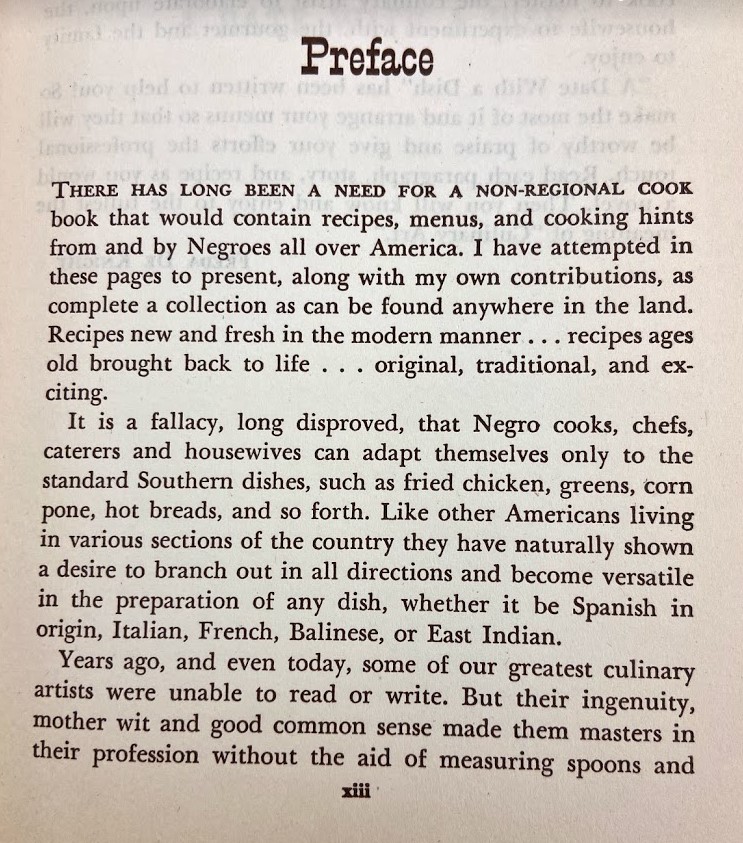Not just fried chicken.
Posted by Admin.May 3rd, 2021
Blog post by Christina White, undergraduate researcher at WVU
This is the fifth post in White’s series on race, justice, and social change through cookbooks, featuring the following books from the Ebersole collection: Mammy Pleasant’s Cookbook, A Date with a Dish, A Good Heart and a Light Hand, and The Jemima Code.
“It is a fallacy, long disproved, that Negro cooks, chefs, caterers and housewives can adapt themselves only to the standard Southern dishes, such as fried chicken, greens, corn pone, hot breads, and so forth.” The preface was probably quite inflammatory to prejudiced whites that came across it. To get a sense of the author’s courage, glance over the first page here:

The author, Freda de Knight, in her book, A Date With a Dish: A Cook Book of American Negro Recipes, acknowledges stereotypes. She knows that Black individuals had to improvise, cooking without measurement or modern equipment. How could they formally publish cookbooks when they couldn’t read or write?
Hannah Giorgis in Bon Appetit describes how Freda’s cookbook transformed the future of Black cooks. She recognized that “cultural archiving and culinary research are both pursuits for which few black people have received compensation.” It’s a great read for home chefs, history buffs, or anyone interested in how one woman stood for justice.
*It’s nearly impossible to find a print copy of Freda de Knight’s book, as numerous Amazon and Google searches proved. However, WVU students and staff can visit the Ebersole Collection on the 6th floor of the library to read our copy for free! Make an appointment. (They’re open during the COVID-19 pandemic by appointment.)
**I also found this online version of A Date with a Dish digitized by Cornell University.





